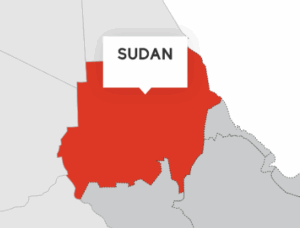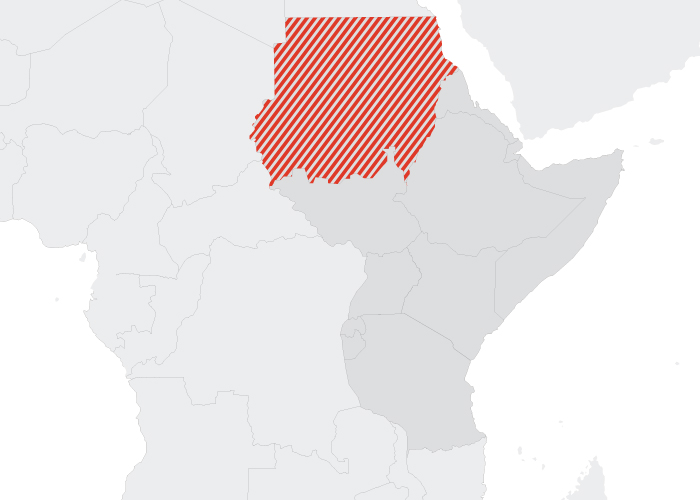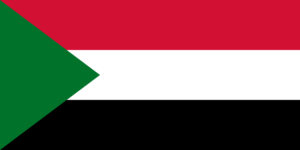
El Fasher atrocities under UN spotlight, but accountability gaps remain in Sudan
In light of the atrocities committed by Sudan’s paramilitary Rapid Support Forces (RSF) and their allies in and around El Fasher, North Darfur, it was
Sudan faces a complex human rights crisis marked by a significant increase in violations across various fronts. The ongoing one-year conflict has claimed over 12,190 lives and displaced millions, leaving 25 million reliant on humanitarian aid.
Sudan faces a complex human rights crisis marked by a significant increase in violations across various fronts. The ongoing one-year conflict has claimed over 12,190 lives and displaced millions, leaving 25 million reliant on humanitarian aid. Nearly 18 million individuals experience severe food insecurity, worsened by humanitarian workers facing obstacles in reaching those in need. The Sudanese Armed Forces (SAF) continue to block aid deliveries through vital crossing points, impose restrictions on transporting aid supplies, and ban civil society groups, alleging collaboration with the Rapid Support Forces (RSF). Tragically, paramilitary groups, such as the RSF, have weaponised Sexual and Gender Based Violence (SGBV) as a war tactic, targeting women and girls. Children are subjected to arbitrary arrests and recruitment into armed forces Journalists and media workers are increasingly subjected to attacks, forced closure of newspapers and radio stations, thus stifling freedom of expression. Peaceful civic activities have been banned in several States, including the Blue Nile and Red Sea regions. Additionally, Sudan experienced internet shutdowns and curfew enforcement, obstructing efforts to address the root causes of unrest. Notably, hate speech has escalated, particularly targeting advocates. Resistance Committees, pro-peace activists, community leaders, humanitarian workers, medical personnel, journalists, and political party members all faced direct threats during the reporting period.
The information is based on our latest bi-annual report that can be found under our reports.


In light of the atrocities committed by Sudan’s paramilitary Rapid Support Forces (RSF) and their allies in and around El Fasher, North Darfur, it was

In a letter released today, civil society calls on the UN Human Rights Council to convene a special session on Sudan to address the situation

Meeting in Geneva today, the UN Human Rights Council adopted a new resolution on Sudan. By extending the mandate of the Independent International Fact-Finding Mission